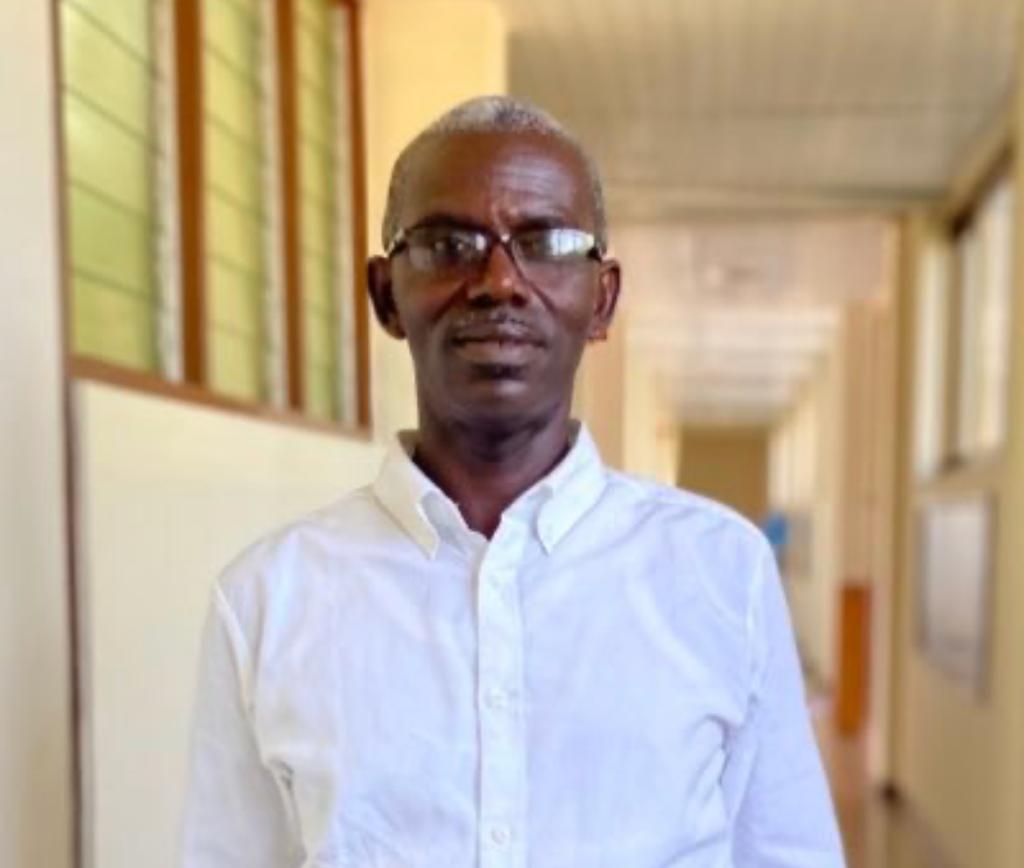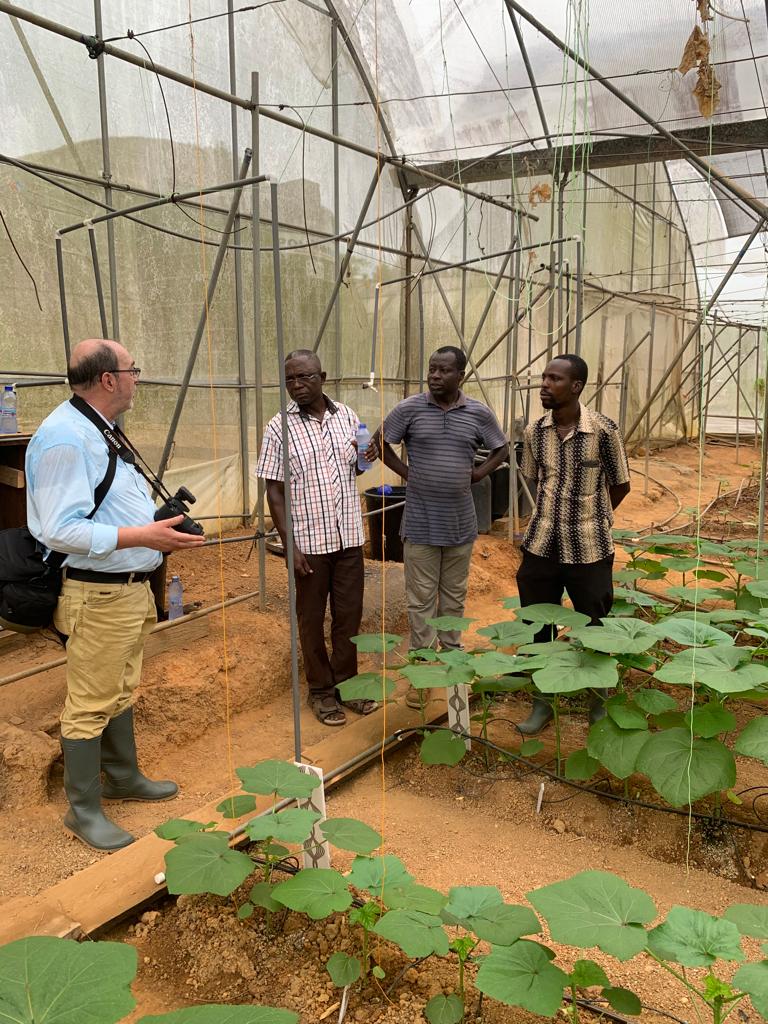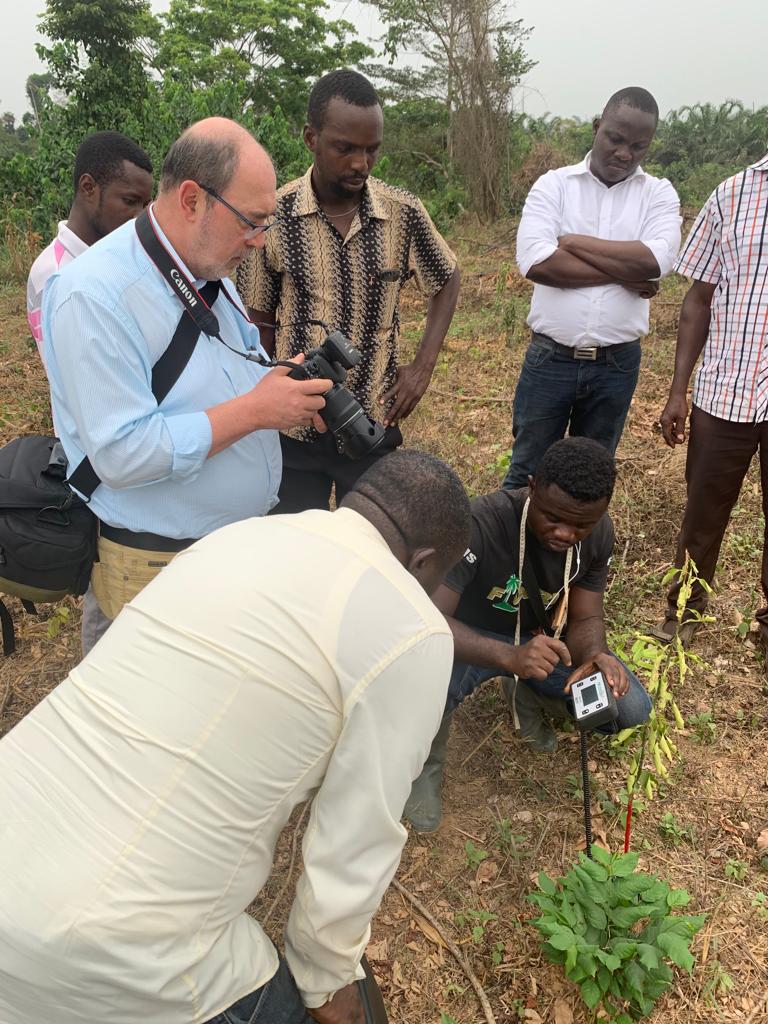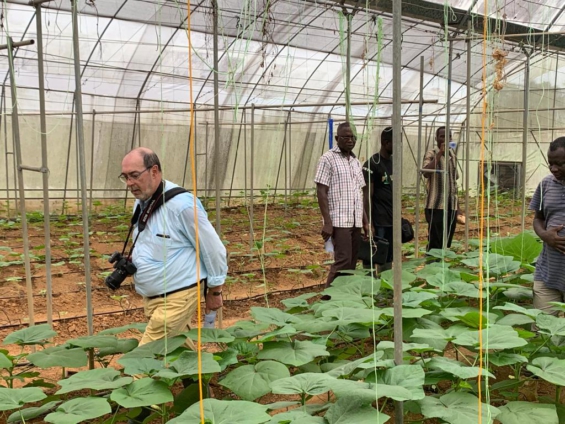The current challenges of drought and dehydration in Ghana and adverse effects of climate change can be addressed by applying a new organic water retention product to tree crops in the most affected areas in Ghana.
The unpredictable rainfall pattern in the country due to climate change means that most tree crop and cocoa farmers in the Ashanti, Bono, Ahafo and Western North regions are likely to miss production targets this year.
This has severe implications for Ghana’s economy which relies heavily on returns from the export of cocoa and other tree crops.
The water retainer is an organic soil conditioner that helps plants take-up water and diminishes the effects of drought and dehydration.

According to Professor Samuel Nsiah-Adjei of the Forest and Horticultural Crops Research Centre of the University of Ghana and an International Research Scientist at the International Institute of Tropical Agriculture, water retainer, which is developed by Water and Soil Company of Hungary, can transform agriculture in Ghana by improving soil moisture by between 30-40%over current conditions.
The water retainer improved soil moisture conditions of fields used for tests with significant improvement on the cocoa plot due to differences in the soil textural characteristics of the plots.
When water retainer application was combined with mineral fertilizer application to cocoa seedlings, soil moisture conservation was more effective and this translated into improved growth of seedlings.
This development is encouraging due to the increasing high mortality rate of cocoa seedlings as a result of relatively poor climate conditions in the country. The challenges with weather conditions in Ghana is discouraging.
Most cocoa trees are fruiting but lack of rain is causing the pods to fall prematurely.
This year the rains have delayed. Yields from cocoa have been reducing from 2020 due to change in weather.
Water Retainer is designed to reduce the impact and to initiate adaptation to the climate change and it results in increased microbiologic life activity, increases crop yield, helps better germination, reduces salinisation making farming possible in very dry areas and provides good ROI to farmers.

The Water Retainer is an organic soil-conditioning product. Generally, its effects last 3 months, during which period – pending appropriate application of the Water Retainer – the soil’s water retainment ability is substantially increased.
With Water Retainer crops can survive the drought period much longer (1-2 times longer) in rain-fed cultivation resulting in a 14 – 37 % yield increase.
The farmer can save even up to 50 % of its irrigation water and cost in irrigated cultivation.
The product is registered to be used in organic farming. It applicable independently from the soil type and the kind of a plant.
Applying this excellent ability in the developmental stage of our plants, the benefits in better root development and better hydration will last for the whole cultivation period.
Prof Nsiah-Adjei, who is a trained Agronomist and holds a PhD degree in Production Ecology and Resource Conservation from Wageningen University and Research Centre, The Netherlands, recommends that farmers need to adopt good agronomic practices and modern technology to increase yields.
Water retainer can be applied by either spraying on the surface or solved in the irrigation water, with different levels of dilution possible.
In time, the Water Retainer will attach itself to both the roots of the plant and the soil grains, thus allowing water – either by rain or irrigation – entering the soil to trickle down to the water table, increasing our water reserve.

The Water Retainer springs into action when vapour streams its way upwards though the capillaries, trapping vapour and transforming it into tiny droplets of water.
These droplets can be drawn upon by plant roots to absorb water. Meanwhile, the product sprayed on the surface also traps air humidity. Water Retainer works with all types of plants, and on all types of soil.
Water retainer has already been evaluated on cocoa, vegetables and other crops and was approved by the Ministry of Food and Agriculture in 2020 and is distributed by Blue Raven Company.
This soil conservation technology is endorsed by the Food and Agriculture Organisation (FAO) and is already in use successfully in India, Hungary, South Africa, Morocco, and Kenya and seven other countries.
Latest Stories
-
Putin says Russia will use new missile again in ‘combat conditions’
53 mins -
We have rescued kidnapped Emirates Airlines Airport Services Manager – Police
1 hour -
Bawumia-branded campaign vehicle burns, occupants escape unscathed
2 hours -
Bawumia, thousands observe ‘Jummah’ prayers as new Walewale Central Mosque is commissioned
2 hours -
Peasant farmers hail Bawumia as Walewale Watermelon Factory is commissioned
2 hours -
Joy FM Prayer Summit for Peace ends in electrifying worship and prayer
10 hours -
The Conscience of Leadership: A call to President Akufo-Addo on Ghana’s environmental devastation
10 hours -
Ghanaian youth unaware of their right to hold politicians accountable – Youth Bridge Foundation
11 hours -
Judge delays Trump sentencing for a third time
11 hours -
2024 WAFCON: Ghana drawn against defending champions South Africa in Group C
12 hours -
Photos from DW-JoyNews street debate on ‘galamsey’
13 hours -
Mimmy Yeboah: Blending heritage with global sophistication, confidence redefined through couture
13 hours -
100 Most Influential People Awards 2024: Brain Hill International School’s Director Mary Anane Awuku honoured
13 hours -
Akufo-Addo commissions 97-km Tema-Mpakadan railway line
13 hours -
Majority requests recall of Parliament
14 hours

